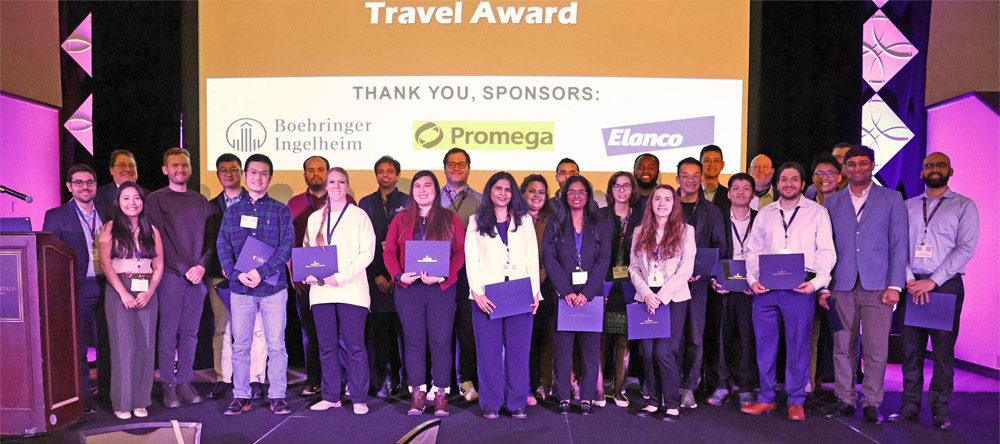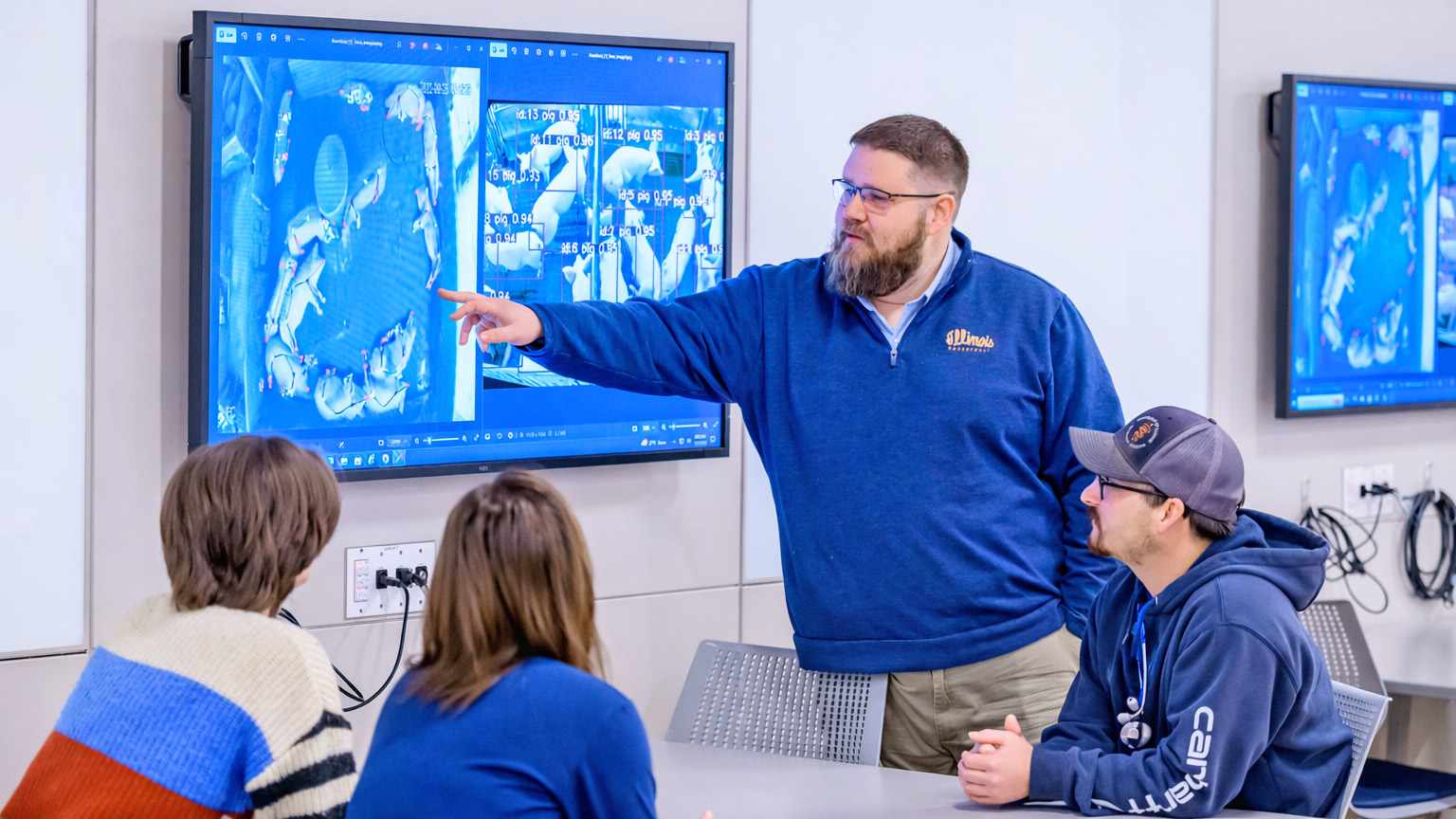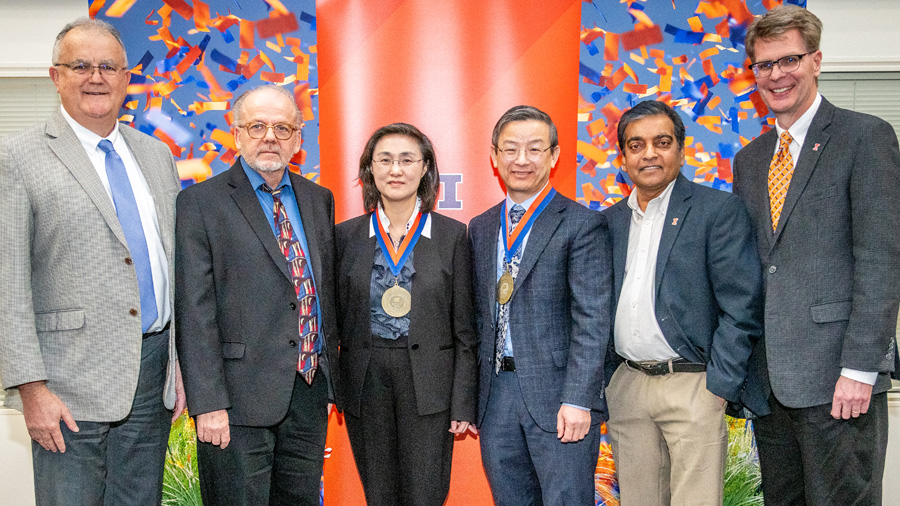Last summer, a wildlife residency program that meets the rigorous standards of the American College of Zoological Medicine was established through a collaboration between the Chicago Zoological Society (CZS), which manages Brookfield Zoo; the Forest Preserves of Cook County; and the University of Illinois College of Veterinary Medicine.
The Illinois Zoological and Wildlife Health Management Residency is the first and only such program to be headquartered within an agency devoted to free-ranging wildlife. It aims to build critically needed knowledge about the health of wild animal populations in urban and suburban settings.
Illinois Connections
The first resident in the program is Dr. John Winter, a 2020 graduate of the College of Veterinary Medicine. And while he will work with nearly 20 veterinarians across the three partner institutions, his primary mentor is Dr. Matt Allender, a five-time graduate of the University of Illinois, including veterinary, master’s, and PhD degrees from the College of Veterinary Medicine. (The photo at the top of the page shows the two of them examining a duck.)
“Having the opportunity to study free-ranging wildlife health and train under experts in the field, like Dr. Allender, is truly a dream come true,” said Dr. Winter. “The ability to gain this type of field experience is invaluable, and it’s been amazing to receive mentorship from multiple perspectives on wildlife health, including biologists, zoo veterinarians, and molecular diagnosticians.”
Dr. Allender had a lead role in developing the new residency. A clinical associate professor at the College of Veterinary Medicine, he divides his time between working as a clinical veterinarian at Brookfield Zoo and as director of the Wildlife Epidemiology Lab, a program he created at the college. Dr. Allender has also worked closely with the Forest Preserves for many years, positioning him well to unite the effort to launch the residency program.
Alumnus of Wildlife Epi Lab
As a veterinary student, Dr. Winter served as a fellow in the Wildlife Epidemiology Lab. His role combined health evaluations of free-living turtles, caring for reptiles living in the lab, and public education about the team’s work through blogs. After earning his veterinary degree, Dr. Winter completed a one-year wildlife medicine internship in Washington state.
“Dr. Winter is a fantastic selection as the first resident in this program,” said Dr. Allender. “His career goals align with the program goals and his experiences prior to joining the residency have prepared him to be successful from day one.”
Impact in Year One
“This residency provides an opportunity for a veterinarian to train with some of the world’s best wildlife biologists,” said Dr. Allender.
The Forest Preserves of Cook County is one of the oldest and largest forest preserve districts in the country, covering nearly 70,000 acres. Their staff leads data collection and research efforts to improve land management practices, maximize biodiversity, and safeguard public health. Dr. Winter works closely with Forest Preserves field programs, conducting and assisting with laboratory and field research to advance wildlife and ecosystem health.
“We have been conducting field research in the preserves with a variety of partners for decades, but the residency program brings the Forest Preserves to another level of monitoring the health of the local animal populations,” said Chris Anchor, senior wildlife biologist with the agency.
“Already in the first year, with clinical health assessments now available, we have several new findings that would have taken years to discern in the past.”
Discoveries made in the past year include:
- Identifying for the first time in native, endangered Blanding’s turtles a virus known to infect invasive red-eared slider turtles;
- Demonstrating that local coyotes test negative for canine influenza, which means they cannot be the source of cases found in domestic dogs in the Chicagoland area; and
- Discovering adenovirus—a disease that can affect reproductive health—for the first time in Illinois wood ducks.
Meeting a Need for Wildlife Veterinarians
“Our new wildlife residency program is underway at a significant time,” said Dr. Sathya Chinnadurai, senior vice president of animal health and welfare for the Chicago Zoological Society. “Fewer than half the states in the U.S. have wildlife veterinarians.”

Although CZS and its partners have trained veterinary residents in the medicine of zoo and aquarium animals for many years, this is the first time a program is focused on free-living wild animals. As the initiative develops and grows over time, CZS hopes to scale up the program to support additional animals and areas.
In addition to working with the animals overseen by the Forest Preserves, Dr. Winter spends part of his time gaining clinical experience with animals at Brookfield Zoo. He also devotes time to the Wildlife Epidemiology Lab in Urbana.
“Using proven frameworks in training post-graduate veterinarians in wildlife and ecosystem health, this initiative prepares residents to join the field’s growing workforce and contribute to wildlife conservation,” said Dr. Chinnadurai, who also holds an adjunct faculty position at the College of Veterinary Medicine. “We hope this program can serve as a model for other states and organizations nationwide to collaborate in support of wildlife health.”
Photos courtesy of CZS-Brookfield Zoo




